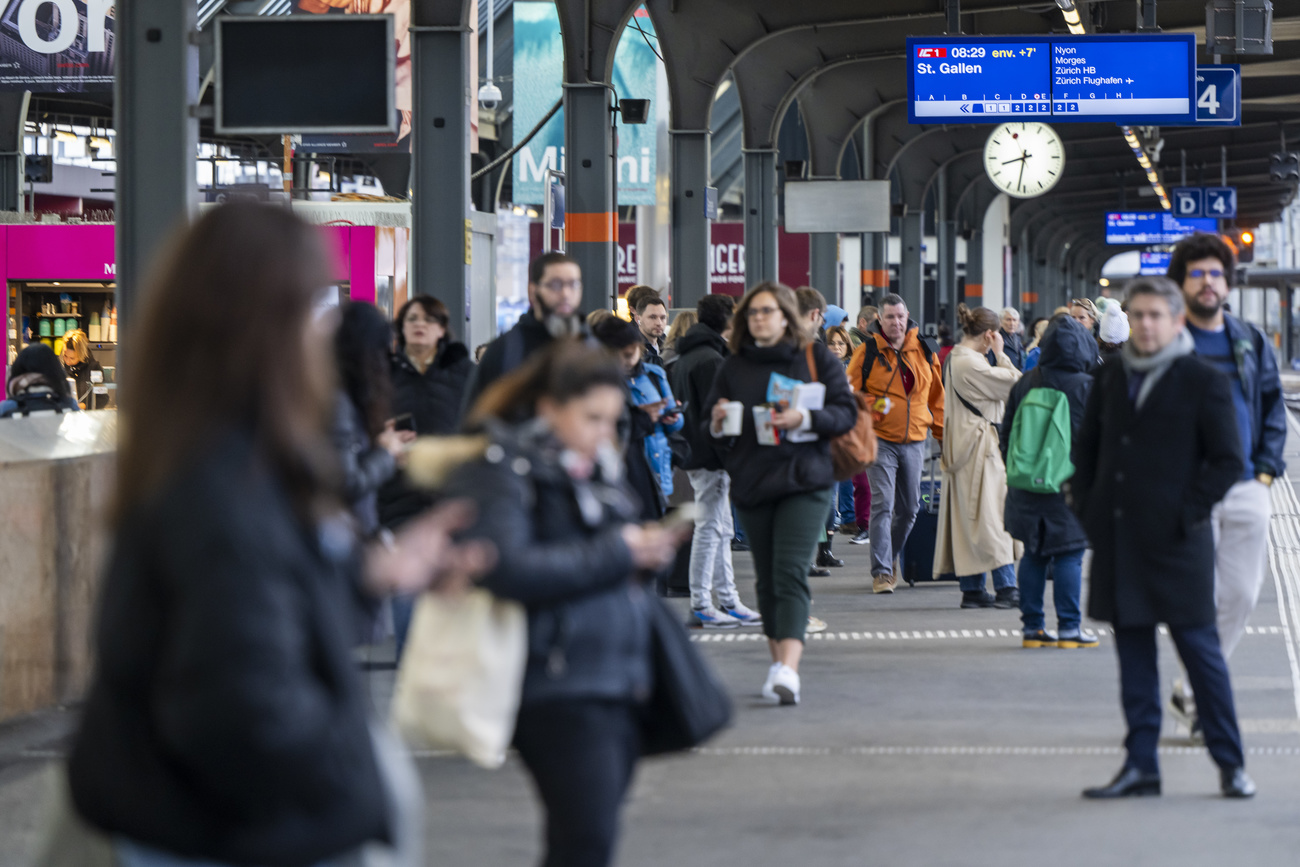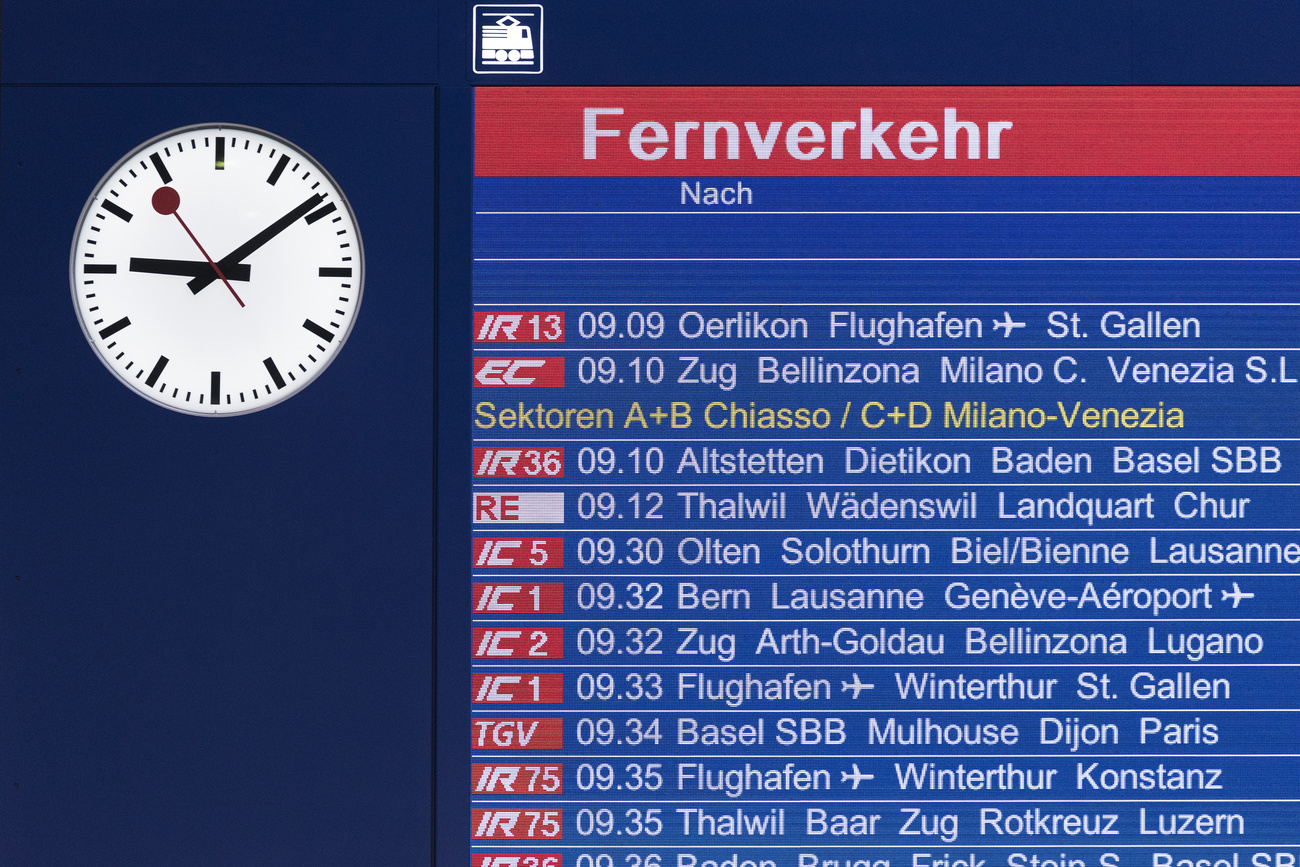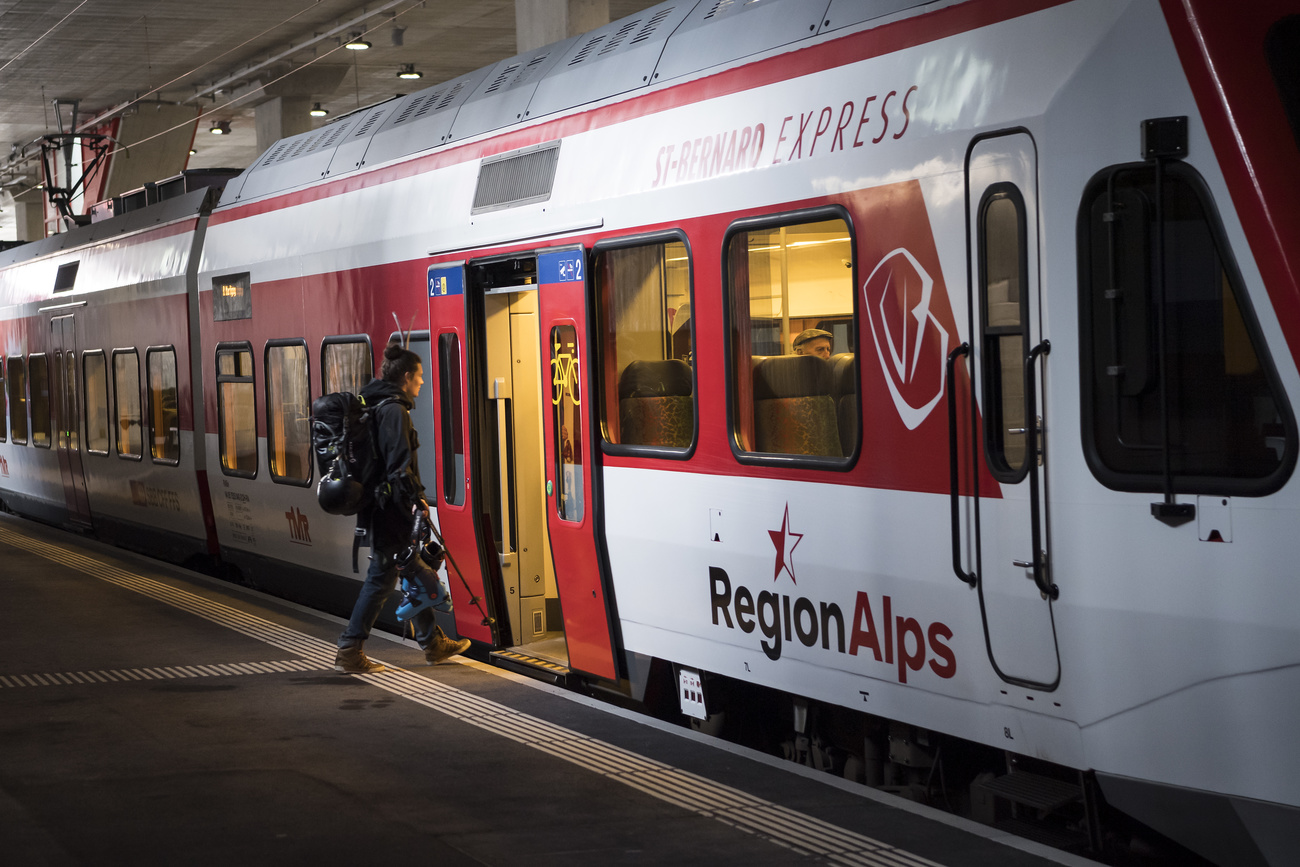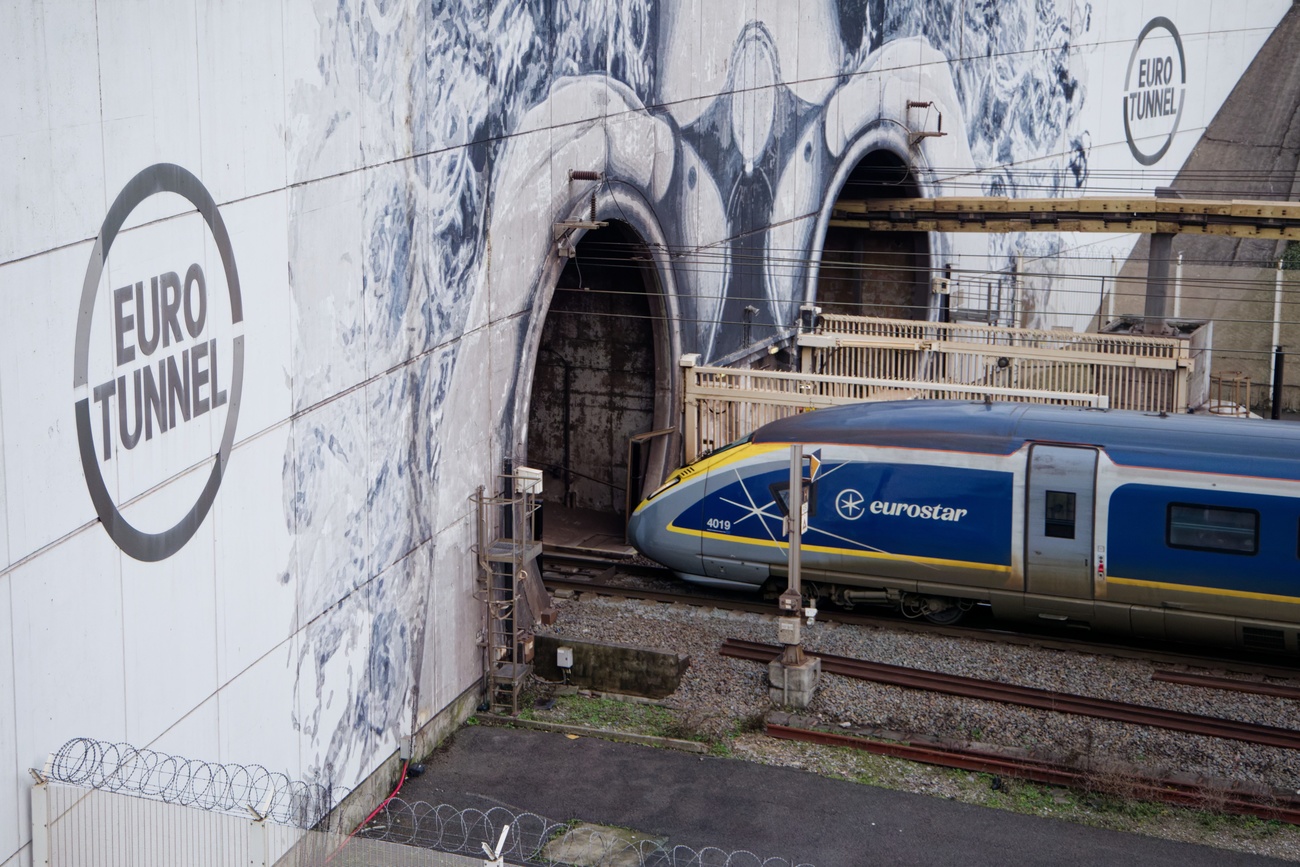
Swiss Federal Railways returns to profit for first time since Covid

Swiss Federal Railways made a profit in 2023 for the first time in three years thanks to record numbers of passengers. But the firm remains heavily in debt, it reported on Monday.
Thanks to a high number of passengers, the rail company reported a profit of CHF267 million ($304 million) last year.
But it remains in the red to the tune of CHF11.26 billion, it told its annual media conference on Monday. The losses of previous years cannot be recouped. In addition, the company is unable to finance future investment, including new rolling stock.
Last year, 1.32 million passengers travelled with Federal Railways every day, compared to 1.16 million in 2022. This means that the record level of 2019 has been reached again. As a result, earnings increased.

More
Swiss Federal Railways negotiates with neighbours to cut train delays
Long-distance rail traffic earned CHF117 million of profit for the first time since 2019, following a loss of CHF47 million in 2022. Leisure travel in particular boosted the passenger business. However, customers criticised the general lack of seating and poor cleanliness on trains.
Covid-19 crisis overcome
Together with the profits from its real estate (CHF281 million) and energy (CHF78 million) divisions, passenger transport contributed to the profitable year. In 2022, the bottom line was still a loss of CHF245 million (2021: CHF-325 million; 2020: CHF-617 million).
Monika Ribar, chair of the board of directors, told the media in Bern that the company had put the Covid-19 pandemic behind it in 2023 and recovered faster than expected. They are “safe, clean and punctual”, despite the accident in the Gotthard Base Tunnel on August 10 and despite 20,000 railway construction sites.
A financially sound Federal Railways would need an annual profit of CHF500 million. The company therefore wants to save around CHF6 billion by 2030. Three major digitalisation programmes are intended to help with this. The federal government has also given financial support to the company to overcome the coronavirus-related losses in long-distance transport.

More
Swiss railways to offer more train services to tourist destinations
Limits to infrastructure expansion
On the personnel side, around a fifth of the workforce will retire by 2030 and around 6,000 employees will need to be replaced. At the same time, the Federal Railways continues to grow. The range of services has expanded by 25% since the start of the Rail 2000 programme.
According to CEO Vincent Ducrot, a growth in traffic can be managed. However, infrastructure expansion is reaching its limits. That is why the Federal Railways is focusing on a more flexible and customer-oriented service and more intensive use of the network, said Ducrot.
This includes, for example, more direct trains for skiing or hiking activities, or for student groups. A quarter-hourly frequency at rail hubs starting in 2035 would simplify the timetable and resolve connection problems without the trains having to run faster, the railway boss continued.
Swiss Federal Railways is aiming for fast and direct train connections with other countries in the second half of the century. In addition to the 15-minute interval, door-to-door connections are to be strengthened by incorporating other mobility systems such as trams, on-demand buses and light railway systems.

More
Could a direct high-speed train link between Switzerland and London soon be a reality?
SBB Cargo reduces loss
The freight division, known as “SBB Cargo”, which was reintegrated into the Federal Railways in June, aims to put the company on an economically sustainable track. Ribar explained that freight transport had seen a 7.5% decline in volume in 2023 due to problems in Germany.
The loss amounted to CHF40 million (2022: CHF -188 million). In 2022, a write-down of CHF128 million was recorded. SBB Cargo international posted a loss of CHF2.5 million. This was due to the economic slowdown in Europe. In addition, extra demand for train personnel as well as construction sites and strikes in Germany drove up costs.
The infrastructure division recovered slightly, thanks to higher revenue from train path pricing for passenger transport and recorded a loss of CHF23 million, CHF1 million less than the previous year.
Adapted from German by DeepL/dkk/sb
This news story has been written and carefully fact-checked by an external editorial team. At SWI swissinfo.ch we select the most relevant news for an international audience and use automatic translation tools such as DeepL to translate it into English. Providing you with automatically translated news gives us the time to write more in-depth articles.
If you want to know more about how we work, have a look here, and if you have feedback on this news story please write to english@swissinfo.ch.

In compliance with the JTI standards
More: SWI swissinfo.ch certified by the Journalism Trust Initiative




























You can find an overview of ongoing debates with our journalists here . Please join us!
If you want to start a conversation about a topic raised in this article or want to report factual errors, email us at english@swissinfo.ch.